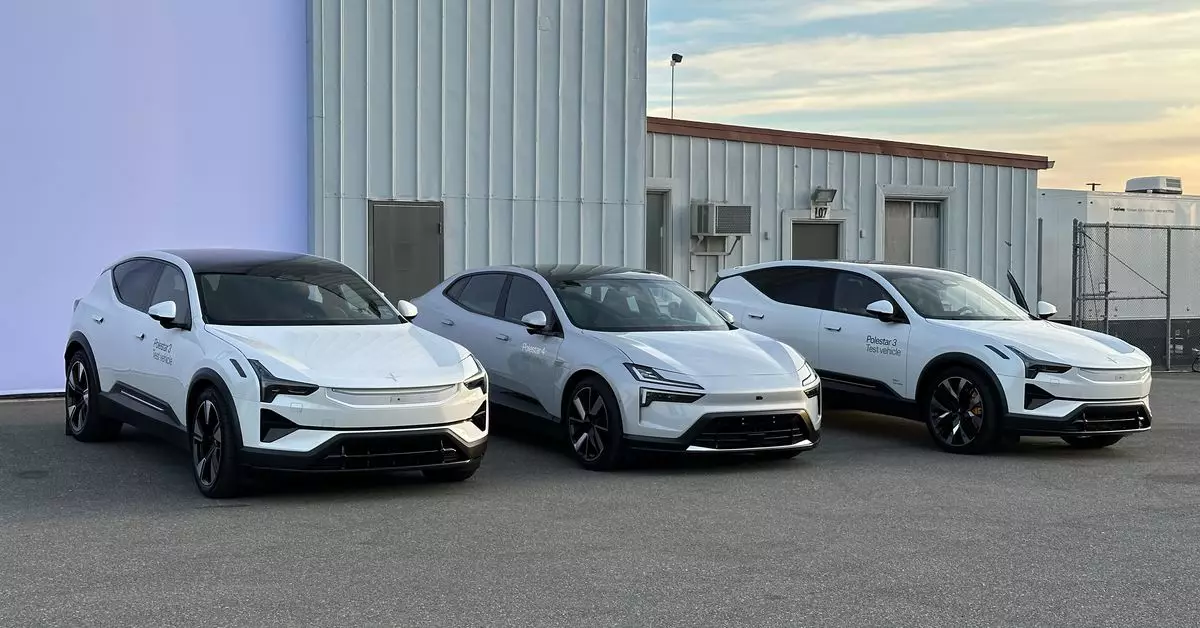The transportation landscape in the United States is facing a seismic shift, predominantly driven by a new rule enacted by the Biden administration that imposes stringent restrictions on the importation and sale of vehicles equipped with connected technology from China and other nations deemed as security threats. This regulatory decision aims to shield national security interests while also heralding significant reverberations across the automotive industry. It raises questions about how such a drastic measure impacts manufacturers, consumers, and the overarching geopolitical landscape.
The newly established rule effectively blocks all vehicles equipped with connected technologies—such as Bluetooth, Wi-Fi, and cellular capabilities—from China and Russia. Specific concerns have been raised regarding the potential for foreign adversaries to exploit technology, thereby gathering sensitive data on American citizens as well as critical infrastructure. Some illustrations of this technology include cameras, sensors, and onboard computing systems that are instrumental in modern vehicles, making them a treasure trove for data leakage.
As noted by US Secretary of Commerce Gina Raimondo, the current vehicle ecosystem—with devices like GPS trackers and high-definition cameras—necessitates heightened vigilance against foreign influence. The administration argues that the implications of this access could potentially threaten U.S. national security. The rules are scheduled to go into effect for model year 2027 vehicles and will further tighten with a ban on hardware imports by model year 2030, leaving manufacturers with limited time to adjust their operations.
The ramifications of this regulation are extensive, affecting a wide range of automotive players—from industry giants such as General Motors (GM) and Ford to smaller manufacturers, including electric vehicle firms like Polestar. While the rule exempts vehicles exceeding 10,000 pounds, companies such as BYD will continue to operate in the U.S. market, especially in the segment of electric buses. However, as the global automotive industry is interconnected, members are grappling with the complexities the rule imposes.
The Alliance for Automotive Innovation, a key representative body for various automotive brands, has shown lukewarm support for the rule’s intent but warns of potential disruptions that could cascade across the already delicate global supply chains. Their caution rests on the fact that merely swapping out components to comply with the new regulations is unenviable and could lead to significant delays in production.
Polestar, a manufacturer with ties to Chinese automotive conglomerate Geely, has explicitly voiced concerns, suggesting that the rule could severely hinder its ability to sell vehicles in the U.S., a market where it has strategically invested in local production.
The decision to wear the national security mantle reflects an ongoing geopolitical tussle involving the U.S. and countries like China. China has rapidly climbed the ranks to become the world’s leading auto exporter, producing vehicles at an unprecedented scale. The White House, recognizing this momentum, has deemed it crucial to curb the advance of foreign technologies that could jeopardize U.S. interests.
This regulatory action is viewed as part of a broader strategy by the Biden administration to secure vital American supply chains and fortify national security against perceived threats from adversarial nations. Such geopolitical maneuvers not only carry immediate technological and economic implications but also influence global partnerships and trade relationships.
Waymo, one of the frontrunners in autonomous vehicle technology, faces uncertainty under this new regulation. The company has plans to leverage vehicles manufactured by Geely’s Zeekr for its robotaxi service. While Waymo asserts that it takes precautionary measures to mitigate risks—such as ensuring vehicles are devoid of manufacturer-installed telematics systems—the new rules can thwart its ambitions to scale its services effectively.
Responses from the industry show a growing trepidation about the impact of these regulations on technological innovations, particularly in the realm of autonomous vehicles. As the U.S. plays catch-up with global competitors in adopting cutting-edge technologies, overly restrictive measures could stymie development and collaboration.
The new regulations established by the Biden administration represent a pivotal moment for the automotive industry, as well as for U.S. foreign policy in the realm of technology. By prioritizing national security over economic openness, the administration is initiating a recalibration of relationships in an increasingly interconnected global marketplace. As automakers and technology providers adapt to this new reality, the implications of this ruling will undoubtedly shape the future of U.S. transportation, consumer choices, and international relations in the coming years. As we venture further into a tech-driven automotive age, maintaining a balance between security and innovation will be essential for both manufacturers and consumers alike.


Leave a Reply
You must be logged in to post a comment.